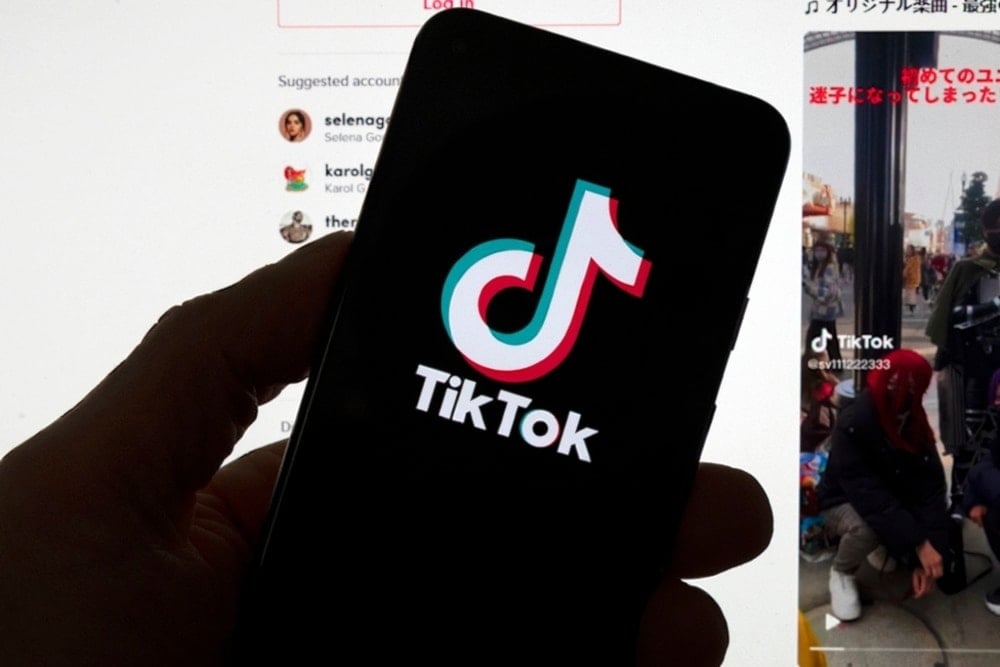TikTok, parent company ByteDance sue US government over ban
The platform is claiming that the legislation against TikTok of 270 days to find a non-Chinese buyer or risk ban is "unconstitutional".
-

The TikTok logo is seen on a mobile phone in front of a computer screen which displays the TikTok home screen on March 18, 2023 in Boston. (AP)
TikTok and its Chinese parent firm ByteDance launched a court challenge against the United States on Tuesday, targeting a regulation that would require the app to be sold or risk a US ban.
The legal action comes nearly two weeks after Joe Biden approved legislation allowing TikTok 270 days to find a non-Chinese buyer or risk a ban in the nation, something the platform alleges is unconstitutional.
The Senate voted to pass a bill that will either ban TikTok or force a sale of the app, giving its China-based parent company ByteDance up to one year to divest its crown jewel before being banned from US app stores.
The bill passed in the House on Saturday with 79 senators voting in favor and 18 against, by a margin of 360 to 58, as part of a foreign aid package for Ukraine, Taiwan, and "Israel". It is now up to US President Joe Biden to make the final decision, noting that he previously said he would sign the legislation.
The petition by TikTok and ByteDance asserts that this is the first time Congress has enacted a law that subjects a "single named speech platform to a permanent, nationwide ban, and bars everyday American from participating in a unique online community with more than 1 billion people worldwide."
The petition alleged that the measure violates the First Amendment, claiming that "Congress has made a law curtailing massive amounts of protected speech."
It also stated that the divestment necessary for TikTok to continue operating in the United States is "simply not possible" and cannot be completed within the requisite time frame.
The White House may extend the 270-day limit once, by 90 days, allowing the app to continue to serve the 170 million US users.
Why is the US banning TikTok?
Republican Montana Sen. Josh Hawley asked the Biden administration on November 8 last year to ban TikTok because of its content about the war on Gaza, which he claims favors pro-Palestinian voices.
The request was sent to Treasury Secretary Janet Yellen, chair of the Committee on Foreign Investment in the United States (CFIUS), with the authority to block foreign involvement in corporations and markets on certain national security grounds.
In it, Hawley wrote that the war is a “crucial test case” for the app's influence as a media organization and source of news as he expressed concern about what he referred to as “the ubiquity of anti-Israel content.”
From another perspective, during a House of Representatives intelligence committee hearing on March 13, Avril Haines, the US director of national intelligence, claimed that China might leverage the social media app to impact the 2024 US elections.
In response to a question from Democratic Representative Raja Krishnamoorthi regarding whether China's ruling Communist Party (CCP) would use TikTok to influence the elections, Haines stated, "We cannot dismiss the possibility that the CCP would utilize it."
Lawmakers expressed concerns that the Chinese government could access user data or influence what content the users see, adding that they could be trying to "exacerbate political divisions within the United States."

 3 Min Read
3 Min Read








